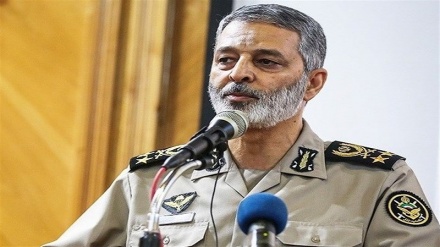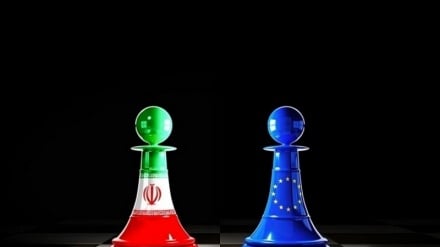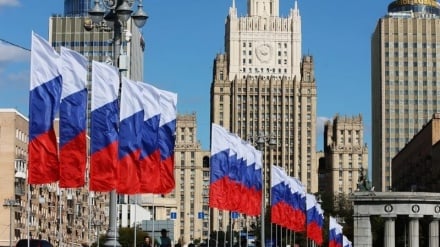Elections: A review of the political systems of neighboring countries
There is not much time left to the 12th presidential elections of Islamic Republic of Iran. Iran’s presidential elections are scheduled to be held concurrent with the 5th Islamic City and Village Councils election and Parliamentary by-elections on May 19.
Several glittering elections have been held in Islamic Iran, after the victory of the Islamic Revolution. Iran’s competitive elections in the past four decades have caught the attention of many analysts and have been praised by them as one of the important benchmarks of political development.
In this episode, we intend to discuss the political systems and the rate of participation of people in the realm of politics, in a number of regional and neighboring countries.
One of the important mechanisms of participation and entry of people into the realm of politics is elections. The higher the turnout in elections; the higher the political development of the country would be. On this basis, in some countries such as Iran, Turkey, India, and Pakistan; the electoral systems maintain a longer history and are therefore distinguished from other parts of the region.
The political pundit, Ali-Reza Davoudi, notes: “One of the most important benchmarks of political culture in Iran is people’s attendance at the polling stations. This shows the national solidarity of the Iranian nation which has been manifested in the best possible manner in the 34 elections which have been held in Iran after the victory of Islamic Revolution. In fact, people’s massive participation in elections has manifested itself in the form of one of the most advanced and important political approaches in a show of national strength. Generally speaking, we have three different types of political systems in the region; very closed political systems; completely clumsy political systems; and balanced political systems with regional frameworks. In our region, a significant part of the political systems are categorized in the first and second groups. Meanwhile, the political system which exists in the Islamic Republic of Iran is balanced and disciplined. So when we speak of elections, we are speaking about the process of establishment of balance in the political system, especially within the region; which is ultimately equivalent to enhancement of national power in the regional domain. This is the most important benchmark and difference between the political system in the Islamic Republic of Iran, and political systems in other regional countries.”
In the recent decades, given the developments which have taken place in the region and the world, some democratic models have emerged in the form of primitive democracies in the region. Thus, election is held in majority of these countries, but democratic changes do not practically transpire. Moreover, separation of branches of government and judicial independence is not observed in the majority of regional countries. Therefore, the political structures of most Middle Eastern countries are a far cry from democracy or even the process of democratic changes.
Currently, upon the spread of the new wave of democracy; West Asia has also been impacted by this wave. The signs of democracy can be observed in the emergence of the new organizations of the civil society.
Meanwhile, some regional regimes, especially the Persian Gulf littoral Arab states, lack the participation of people in the political domain, and therefore do not maintain actual sources of legitimacy. Thus, these regimes are shaky and fragile.
The political pundit, Dr. Marandi notes: “The sacred Islamic system is a democratic, legal, and legitimate ruling system. Only 50 days after the victory of Islamic Revolution a referendum was held. Two months later, the Assembly of Experts election was convened, and upon preparation of the Constitution, a referendum was held in regard to the Constitution.
Now, let’s look at the region. For instance in Libya, you see that Moamer Gaddafi staged a coup 45 years ago and never referred to the public opinion. This was also the case in Sudan. Sadeq al-Bahri staged a coup in the year 1988. The public opinion was not referred to as such in those countries for a number of years. In our neighboring country, Pakistan, transition of power usually takes place through coups. No elections are held in Saudi Arabia and Persian Gulf Sheikhdoms. Even if they stage elections, these elections are completely ceremonial and controlled. In these countries, women usually do not have the right to vote, or maybe they have been granted the right to vote in the past one or two years. In a country like Bahrain, half of the members of parliament are appointed by the Bahraini King. In Iraq, after the fall of the former Iraqi dictator, Saddam Hussein, a relatively democratic system has been established and elections take place based on people’s votes. The fact of the matter is that Islamic Iran’s democracy is unique in the entire region.”
In the recent half century, upon the termination of Cold War, a number of changes took shape in regional countries, which challenged the authoritarian governments, in protection and maintenance of their rule. This in turn led some regional governments to make economic and political reforms. On this basis, some of the regional kingdoms such as Jordan, Morocco, and Kuwait enhanced the authority of their parliaments. Bahrain, Oman, Qatar, Saudi Arabia, and United Arab Emirates founded consultation councils to establish semi-parliamentary systems, without holding any election. These councils did not wield any control over the Executive Branch, and were directly appointed by the heads of their regimes. In fact, the rulers of these countries intend to someone achieve legitimacy via the formation of consultation councils.
Thus, in majority of regional countries, there has been no trace of people’s participation in the political scene.
Even in some advanced states, which claim to champion democracy in the world, the rate of participation of people in elections is insignificant.
Meanwhile, in the Islamic Republic of Iran, elections are held with the massive turnout of people. The first election of the Islamic Republic of Iran was held 45 days after the victory of Islamic Revolution, which is unique worldwide. The fact is that the enthusiasm of Iranian people in determination of the political fate of their country is much higher than other countries and nations.
MR/MG


